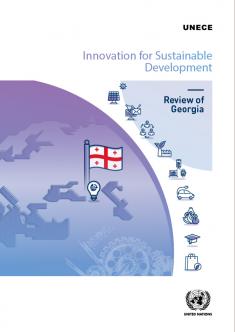Georgia engaged in an impressive array of reforms during the past two decades, turning it into one of the most open, well-governed countries with economies in transition in the UNECE region. The regulatory climate for doing business ranks among the best globally, and Georgia has become a vibrant trade hub, attracted significant investment, and clocked up strong growth over the past decade. One particularly notable area of recent success has been in support schemes to promote innovative start-ups, and the creation of entrepreneurship culture.
The growth drivers that these reforms unleashed, such as consumer spending and construction, are, however, losing momentum. The next stage of growth will require broad experimentation with new ideas to diversify and upgrade the economy. Current challenges, such as COVID-19, environmental sustainability, and rising inequality, make it imperative to reform policies and institutions not only to enable and support this dynamic – but to do so more efficiently in the context of shrinking fiscal space for manouevre. That is why innovation is so central to the sustainable development goals (SDGs) of the United Nations 2030 Agenda for Sustainable Development.
This Review takes an in-depth look at the factors that will underpin innovation-led sustainable development in Georgia. This includes building on a wide range of opportunities for Georgia to catch up with more developed economies while avoiding, mitigating, or compensating for the risks and challenges posed by structural transformation. The Review identifies strengths to build on, and priorities for reform. Georgia has a tradition of high levels of educational attainment, but skills shortages and mismatches in the labour market constrain private sector innovation. Closer coordination and regular monitoring and evaluation of science, innovation and private sector development policies and instruments will be essential to ensure policy effectiveness. Public procurement is a potentially potent but underused lever to catalyse innovation, while improving managerial, technical, and organizational capacities in the private sector will be essential to absorb and put into practice new ideas.
UNECE advisory work in this area draws on longstanding engagement across the region. The Innovation for Sustainable Development Review is the result of a concerted, comprehensive approach, with strong and regular country involvement and peer review. UNECE would like to thank the Government of Georgia, the national focal point, Georgia’s Innovation and Technology Agency (GITA), and other stakeholders for their excellent support to this project. UNECE looks forward to supporting Georgia further in their efforts to put the recommendations of this review into practice as an essential element of UNECE-Georgia cooperation across a range of areas.


